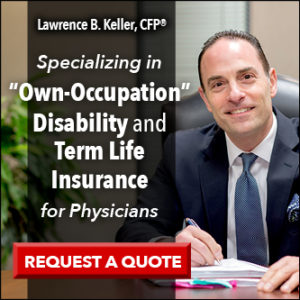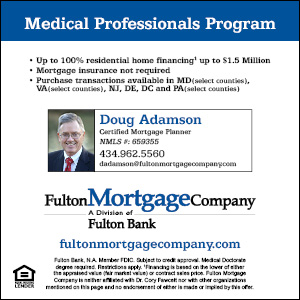(This is the time of year when medical students start their final year and begin the interview process to find a residency. I’ve asked Eric Brown to give you a few tips that will help you ace those interviews. These tips will also help you with other interviews you will have throughout your life.)
After countless hours of hard work and three demanding years of medical school, it’s now time to face the spotlight! If your interview invites have started rolling in and you are feeling intimidated by the thought, follow these tips to land your first choice of clinical residency.
1. Be Prompt with Your Responses to Interview Invites
Be sure to set your inbox to automatically refresh every hour during the interview season so you don’t miss out on the interview dates because most residency programs have multiple interview slots that are taken up quickly. You also need to make sure your interview dates  don’t clash with other events so know the schedule in advance and plan accordingly.
don’t clash with other events so know the schedule in advance and plan accordingly.
2. Prepare in Advance for Different Types of Interviews
Different types of interviews need different preparations. For instance, if you are preparing for an in-person medical residency interview you can do a mock session with a mentor so you are all ready to answer comfortably and confidently in your face-to-face interview.
When preparing for a video interview, you would need to ensure that you are in a quiet, clutter-free space and wearing the right attire. Also make sure that the backdrop is absolutely distraction-free, and finally test your webcam and microphone so you know they work and there are no last minute surprises.
Lastly, if you are prepping for a phone interview, do your homework just as you would for a face-to-face interview. You should be able to confidently discuss your strengths and skills during a telephonic conversation so keep your resume handy if you need to refer to it during the interview. You may also be asked about deficiencies in your application, whether it is a poor grade, a gap in your educational history or a course you may have repeated to see how you respond under pressure. So, be prepared to give an honest explanation that elaborates on what you learned from the experience without making it apparent that your answer is rehearsed.
3. Rehearse Your Elevator Pitch
Once all the pleasantries are taken care of, you are most likely to be asked one question, “Tell me something about yourself”?
So, make sure you leave a lasting impact with a well-rehearsed pitch that efficiently highlights your clinical skills and experience while also mentioning important personal facts like your interests, hometown, and your accomplishments.
4. Conduct a Mock Interview with Behavioral Questions
This is a medical residency interview so you can expect that you will be bombarded with a ton of questions. Even though you may be well-prepared inside-out, behavioral questions often make even the best of candidates fumble. When faced with such questions, it is best to describe the situation in detail followed by your course of action and the outcome. The most commonly asked behavioral questions are:
- Tell me about a difficult time where you managed to work efficiently under pressure.
- Describe a demanding situation during medical school and also how you managed it.
- A mistake that you made at medical school and how you handled it.
- Explain how you would deal with a colleague who is not doing his/her share of work.
5. Ask Questions to Leave a Lasting First Impression
At the end of your clinical residency interview, you are likely to be asked, “Do you have any questions?”
Just the way you set the stage at the start of the interview with your well-prepared pitch, this is your final chance to make an impact or change the perception of the interviewer if you felt that things did not go in your favor so far.
6. Know the Format and Think Through the Structure
You should be receiving an agenda prior to your clinical residency interview where you will be given all the details regarding who will be on the interview panel, if there are one or more interviews and if current residents are also participating in this interview. When you know how the interview will be conducted, you would be in a better position to think through the arrangement and sound confident even if you are in a room with 20 people.
7. Prepare a List of Commonly Asked Questions and be Ready to Deliver Impressive Answers
There are certain questions that are asked in every medical residency interview regardless of where you interview or who the chairperson is. Write out your answers to common questions like: why did you opt for this residency program, how will you be an asset, how will you handle disagreements, what are your strengths and weaknesses or what is the last book you read?


8. Use Your Strengths to Stand Out
If you have compelling clinical skills, find a way to share them. Even if you have a hobby or an accomplishment that may add value to your residency program, talk about it. This is your chance to shine so flaunt whatever it is that makes you unique and leave an impression on the interviewer’s mind.
(I remember those days. It was a bit frightening to go through the interview process. But every physician out there made it through this and so can you. Just be yourself, it’s always good enough. If you are interested in more tips to smooth out the process of becoming a physician, pick up a copy of my book, The Doctors Guide to Starting Your Practice Right. Best of luck.)
Eric Brown is a standardized patient (SP) who lives in New York and advises NYCSPREP with their Clinical Skills course. He has a BA from a liberal arts college in the north east, where he majored in the theatrical arts and business. If you have any questions about standardized CS exams or courses at NYCSPREP, email Eric at eric.brown@nycsprep.com or visit www.nycsprep.com



Great tips Cory. Interviewing was a nerve-wracking and expensive process. The key going in is having self-confidence knowing that you were invited for an interview in the first place so you know they think you have potential.
Practicing with others (especially other medical students) is also a worthwhile endeavor (assign each one a different personality from super aggressive to calm laid back) and you can have experience with any personality you may encounter under the real situation.
Xrayvsn that’s a good point to remember. They invited you so you know they already like you.